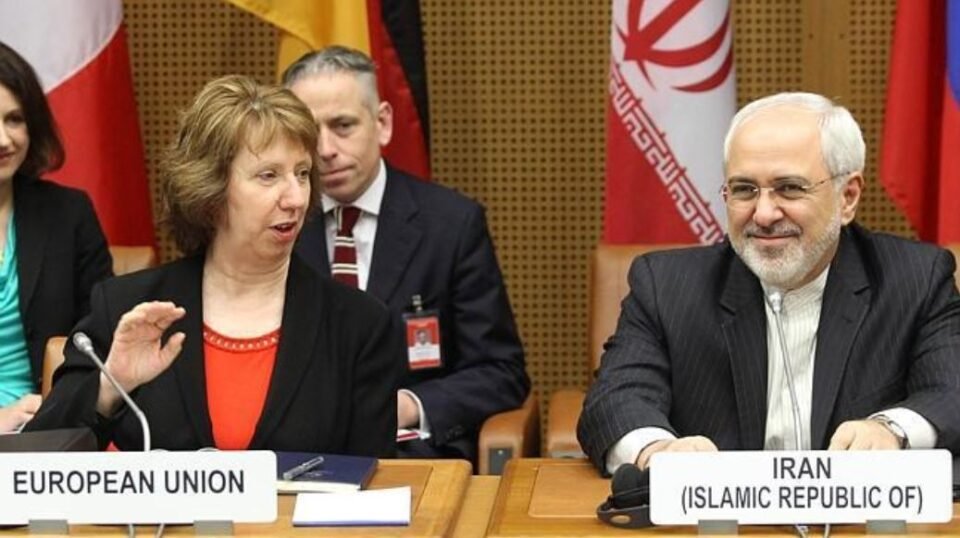According to FM Amir-Abdollahian, Iran could set a timeline for nuclear negotiations.
According to foreign minister Hossein Amir-Abdollahian, more legislation that Iran’s parliament passes could make government efforts at negotiations tougher.
Iran’s Foreign Minister Hossein Amir-Abdollahian said in an exclusive interview that the government may set a legal deadline for resuming stalled negotiations aimed at repairing its 2015 nuclear agreement with Western powers.

When some Tehran lawmakers grow increasingly frustrated with the never-ending negotiations, Amir-Abdollahian, the move may be made through the parliament.
He referred to the Joint Comprehensive Plan of Action, the agreement that the US unilaterally withdrew from in 2018, and stated, “In the parliament, there is this view that the administration should not perennially remain in a path of negotiations to get all parties back to the JCPOA.”
Amir-Abdollahian claims that some parliamentary factions in Iran are pressing for measures and laws that would make the government’s work on the talks “more difficult.”
He told Ali Hashem of Al Jazeera that the window for resuming the JCPOA discussions will not always be available.
Late in 2020, when it set a date for the lifting of US sanctions, Iran’s conservative parliament passed legislation pertaining to the nuclear agreement for the last time. Since that did not occur, the administration of Hassan Rouhani, a centrist former president, increased uranium enrichment and restricted nuclear inspections.
The government of President Ebrahim Raisi is politically far more unified and close to the parliament, and both have frequently held Washington responsible for the failure of negotiations that have been ongoing for almost two years. Since last September, when Iran and the signatory nations from the West accused one another of acting in bad faith during the discussions, the talks have essentially remained in limbo.
As a result of Iran’s response to widespread protests and allegations that Tehran supplied Russia with armed drones for the war in Ukraine, the US and the EU have since placed numerous rounds of further sanctions on the country. Iran has denied supplying weaponry to Russia for use in Ukraine.
Amir-Abdollahian underlined Tehran’s stance that recent “riots” in the nation were being instigated by Western supporters, which he also claimed was impeding the discussions. On the condition that the American side behaves realistically, he said, “we are now at a stage where reaching a deal may be within reach.

The international atomic energy agency (IAEA) and Iran are reportedly holding ongoing technical discussions, and Tehran intends to continue its collaboration with the IAEA. Neither party has given specifics on the discussions.
“We haven’t related it to the JCPOA but there are technical concerns that I hope lead to results,” Amir-Abdollahian stated in reference to exchanging inmates with the US.
“New dialogic environment”
Despite the impasse over the nuclear agreement, Iran is continuing its efforts to strengthen its relations with Saudi Arabia, a rival in the area, and perhaps other Arab nations.
This month, China helped negotiate a deal between Tehran and Riyadh. In accordance with the agreement, respective foreign ministries were required to reopen diplomatic missions within two months.
To complete the agreement, Amir-Abdollahian and his Saudi counterpart, Faisal bin Farhan, are anticipated to meet before the conclusion of Ramadan in late April. Moreover, the Iranian president has been invited by the kingdom for a state visit, which he has accepted. According to Amir-Abdollahian, Iran also intends to invite the Saudi royal family.
“We believe that normalizing relations between Tehran and Riyadh will not only be advantageous for both governments and nations, but also advantageous for the region,” he said.
Tehran has not restricted its efforts to Saudi Arabia alone; it is also attempting to strengthen ties with Bahrain and the United Arab Emirates. Iran and Bahrain have been communicating through Oman, according to Amir-Abdollahian, and are currently sending delegations to visit embassies and examine the possibility of normalizing diplomatic relations.
During a conference in December that had an emphasis on Iraq, the foreign minister also spoke with the presidents of Jordan and Egypt and indicated a desire to do so again.
“The region is experiencing rapid development. Possibly ten years ago, the region was experiencing difficulties that were developing quickly to the point where political solutions were behind, according to Amir-Abdollahian. But now that the region is getting closer to a greater comprehension of the realities, international trends and the region’s improved grasp of them are motivating everyone to put an emphasis on communication, peace, and security throughout the region. The region is now experiencing a new climate of communication and cooperation.





